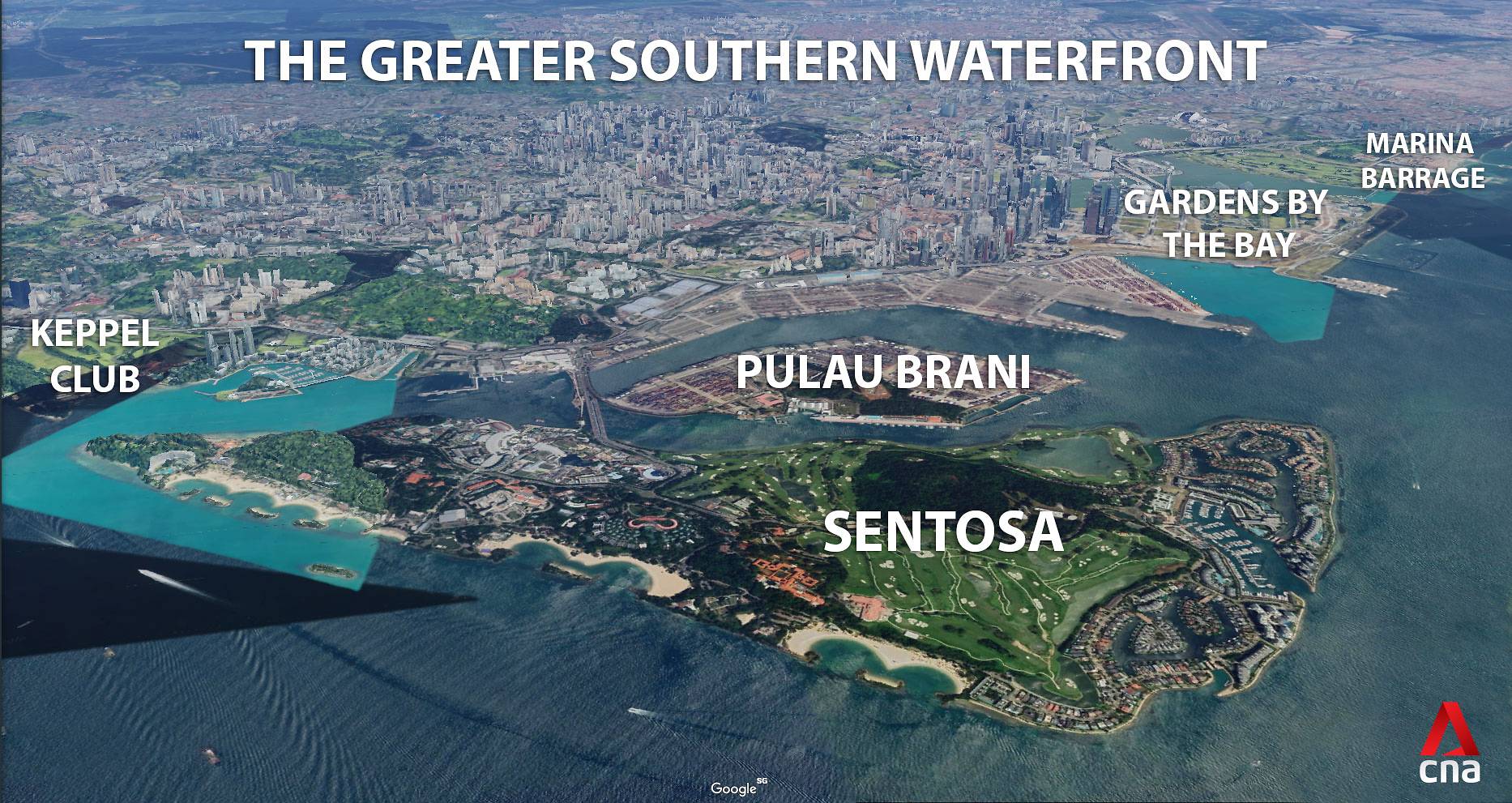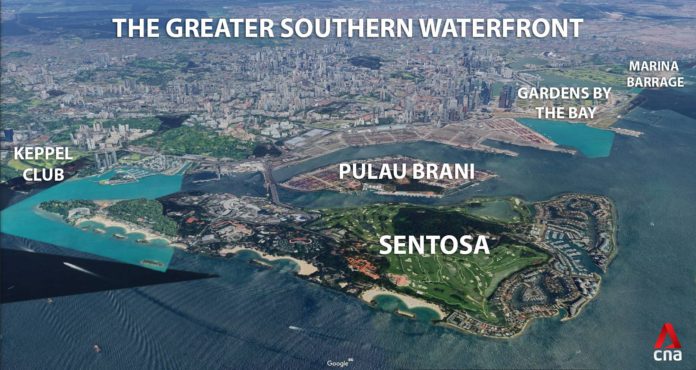SINGAPORE: The Government is working out a new pricing model for future public housing in the Greater Southern Waterfront, in order to mitigate the so-called “lottery effect” of obtaining a subsidised flat in a prime area, said Minister for National Development Lawrence Wong on Thursday (Sep 19).
His comments come after Prime Minister Lee Hsien Loong said in his National Day Rally speech last month that the Government plans to build 9,000 private and public housing units on the site of the current Keppel Club when the lease expires in two years’ time.
READ: NDR 2019: New attractions, housing and office spaces to be developed in Greater Southern Waterfront
READ: Specific measures could dampen ‘lottery effect’ of public housing at the Greater Southern Waterfront, experts say
Several analysts had raised concerns on whether public housing in the Greater Southern Waterfront would create a “lottery effect”, where owners sell their units for far higher prices than initially purchased.
Speaking to CNA938’s Arnold Gay and Yasmin Jonkers, Mr Wong said that the Government is still studying the best way to price future homes in the area.

“If you have public housing in such a prime area and if you were to sell it at today’s public housing prices, it will be a very large subsidy. Whoever gets the flats there, by ballot, will be very happy. But it will be a bit of a ‘lottery effect’. Those who don’t get that flat will be very envious,” said Mr Wong.
“On the other hand, if we were to keep the subsidy the same, then the price of those flats will be very high and out of reach. So we have to work out a new model for public housing in the Southern Waterfront. That’s something we are working on,” he added.
NEW INCOME CEILINGS AND GRANTS FOR HDBS
During his interview, Mr Wong also addressed HDB’s recent announcement on higher income ceilings and enhanced grants for buyers.
In response to questions on whether the enhanced grants would shift demand to resale flats, Mr Wong said that the aim of the move was to “provide a better balance between new and resale (flats) in terms of grants”, so that the percentage of people buying those properties “will stabilise going forward”.
Currently, about 75 per cent of HDB buyers opt for new flats, compared with 25 per cent for resale flats, he said.
“I expect with the incentive structure now adjusted, the 75 per cent figure will likely come down in the coming years,” he said.
The new Enhanced CPF Housing Grant (EHG) places no restrictions on flat buyers’ choice of flat type or location, and can be used for new or resale flats.
READ: Higher income ceilings, enhanced housing grant for HDB flat buyers
READ: More buyers to consider buying resale flats with new HDB grants
Mr Wong explained that the Government needed to meet housing demand in Singapore with both new and resale flats.
“If we were to meet demand solely through new flats, there is a real risk that in the longer term, with our ageing demographics and population trends, we might very well end up with an oversupply of flats in Singapore,” he said.
Mr Wong also explained that the ministry raised the income ceiling for people buying new HDB flats to accommodate rising income levels.
The income cap for families buying Build-to-Order flats has been raised to S$14,000 from S$12,000, while the ceiling for singles aged 35 and above has been raised to S$7,000 from S$ 6,000.
“As incomes rise, a few of them at the margins will then exceed the income ceiling and then they would no longer have the chance.
“So we monitor the income ceiling all the time and as incomes rise, we will adjust the income ceilings accordingly so that about eight in 10 or more than eight in 10 Singaporeans will be eligible to buy public housing in Singapore,” said Mr Wong.
Minister for National Development and Second Minister for Finance Lawrence Wong speaks to cna938 on Sep 19, 2019. (Photo: Gaya Chandramohan)
SOLAR PANELS
During the interview, Mr Wong also touched on the use of solar power in Singapore, saying that the potential of the renewable energy source is “promising”.
By next year, almost one in two HDB blocks will have solar panels on their rooftops, he said.
There could be potential to “stretch that further”, and the ministry is looking into vertical solar panels that can used as building facades or cladding, noting that buildings have “a lot more vertical space than horizontal space”.
READ: From floating solar farms, to HDB rooftops: Where Singapore’s sun-powered future lies
He added that the vertical panels could be used in both public housing and private buildings, and that there is “tremendous potential to step up the deployment of solar power in Singapore”.





